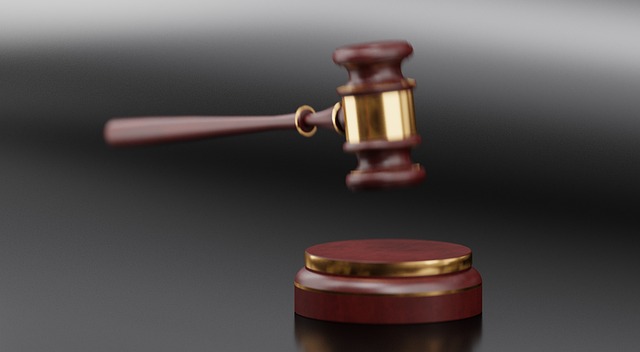When facing a legal issue, finding the right lawyer is paramount to the success of your case or legal matter. Lawyers come in various specialties, each with unique expertise in different areas of the law. Whether you are dealing with a personal injury claim, a family law matter, a business dispute, or any other legal concern, assessing a lawyer’s expertise before entrusting them with your case is crucial.
This article will explore the key factors to consider when evaluating a lawyer’s knowledge and how to ensure that you choose the right legal representative to handle your specific legal needs.
Contents
Identify Your Legal Needs
Identifying your legal needs is the first step in assessing a lawyer’s expertise. The legal field is vast, encompassing various practice areas, such as criminal law, civil litigation, corporate law, immigration law, family law, and more.
Understanding the nature of your legal issue will help you narrow down the type of lawyer you require. For instance, you will most likely need a lawyer to represent you if you have been in a road mishap with a truck. In this case, opt for a truck accident lawyer who can handle your case appropriately. On the other hand, if you are involved in a divorce, a family law attorney with experience in divorce, custody, and child support matters would be more suitable; click here for a better understanding. Knowing your legal needs will guide you in selecting a lawyer with the right expertise and knowledge to handle your case.
Research the Lawyer’s Specialization
Once you have identified your legal needs, research potential lawyers’ specializations. Lawyers usually focus their practice on specific areas of law to develop expertise in those fields. For example, there is no singular type of car lawyer and they may specialise in different areas such as road legality or injury compensation, so you will want to hire one who understands car repossession law if you need help with a car that has been unlawfully repossessed for instance. Review their websites, biographies, and online profiles to determine their practice areas and areas of specialization. Look for lawyers who have experience in handling cases similar to yours.
Check if they have represented clients with similar legal issues and the outcomes of those cases. A lawyer with a track record of success in cases like yours is more likely to have the necessary expertise to handle your matter effectively.
Assess Professional Experience and Background
A lawyer’s professional experience and background are crucial when evaluating their expertise. Determine how long the lawyer has been practicing law and whether they have worked on cases similar to yours throughout their career. Experience often brings a deeper understanding of legal nuances, negotiation skills, and familiarity with local court systems.
A lawyer with a long-standing practice in a specific area of law is likely to possess the expertise needed to navigate complex legal matters successfully. Additionally, look into the lawyer’s educational background, including law school attended and any relevant postgraduate education or certifications. While a prestigious law school does not guarantee expertise, it can indicate a commitment to legal excellence and continuous learning.
Review Client Testimonials and References
Client testimonials and references can offer valuable insights into a lawyer’s expertise and the quality of their representation. Look for reviews and testimonials on the lawyer’s website or other online platforms. Positive feedback from past clients can provide reassurance about the lawyer’s abilities and professionalism.
Ask the lawyer for references from previous clients with similar legal matters if possible. Speaking with former clients directly can give you a clearer picture of the lawyer’s approach, communication style, and overall experience working with them.
Evaluate Reputation in the Legal Community
A lawyer’s reputation in the legal community can be an essential indicator of their expertise and credibility. Lawyers respected among their peers often have higher knowledge and ethical standards. Check if the lawyer is a member of professional organizations, bar associations, or legal societies.
Being part of these organizations demonstrates a commitment to professional growth and adherence to ethical guidelines. Moreover, inquire about the lawyer’s standing with the local bar association. This information may be available on the bar association’s website. If the lawyer has faced disciplinary actions or complaints in the past, it may raise concerns about their expertise and professional conduct.
Consider Communication and Accessibility
Effective communication is vital in the attorney-client relationship. Assess how responsive the lawyer is to your inquiries and whether they take the time to explain legal concepts and processes clearly. During an initial consultation, consider the lawyer’s communication style and whether they actively listen to your concerns. A lawyer who actively engages with you and keeps you informed about the progress of your case is more likely to provide competent representation.
- Discuss Fees and Billing Structure
Understanding the lawyer’s fee structure is essential to assessing their expertise. While legal representation can be costly, clearly understanding the fees and billing arrangements upfront is necessary. Ask the lawyer about their billing rates, how expenses will be calculated, and whether any retainer or upfront payment is required. A reputable lawyer should be transparent about their fees and billing practices.
- Factor in Case Strategy and Approach
During your initial consultation with the lawyer, discuss their proposed strategy and approach for handling your case. Inquire about potential challenges, risks, and the expected timeline for resolution. A competent lawyer will outline a plan tailored to your legal needs and objectives. They should be able to address any concerns you may have and provide realistic expectations for the outcome of your case.
Trust Your Instincts
Ultimately, when assessing a lawyer’s expertise, trust your instincts. If something feels off or you have reservations about a particular lawyer, you must consider those feelings seriously. Building a solid attorney-client relationship requires trust and confidence. Suppose you do not feel comfortable or confident in a lawyer’s abilities during the initial consultation. In that case, it may be best to continue your search for someone whose expertise and approach align better with your needs.
Assessing a lawyer’s expertise for your legal matter is a crucial step in obtaining competent and effective legal representation. By identifying your legal needs, researching the lawyer’s specialization, evaluating their experience and background, and considering client testimonials and references, you can decide on the best legal professional to handle your case.
A lawyer’s reputation, communication skills, and approach to case strategy should also be carefully considered. Additionally, discussing fees and evaluating your level of comfort and trust in the lawyer will contribute to selecting the right legal representative.
Remember that a lawyer’s expertise can significantly impact your case’s outcome. Taking the time to assess their qualifications and suitability for your specific legal matter is an investment in ensuring that your legal rights are protected, and your interests are represented effectively.




